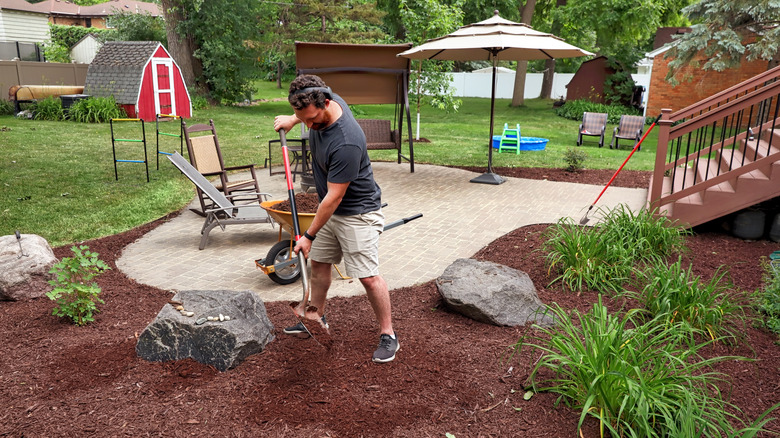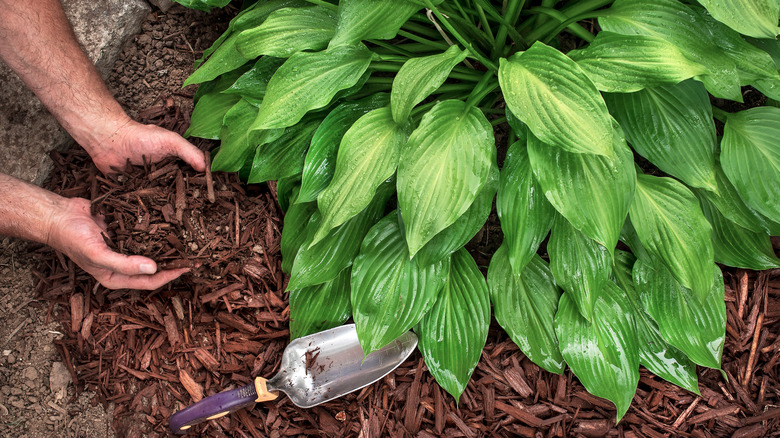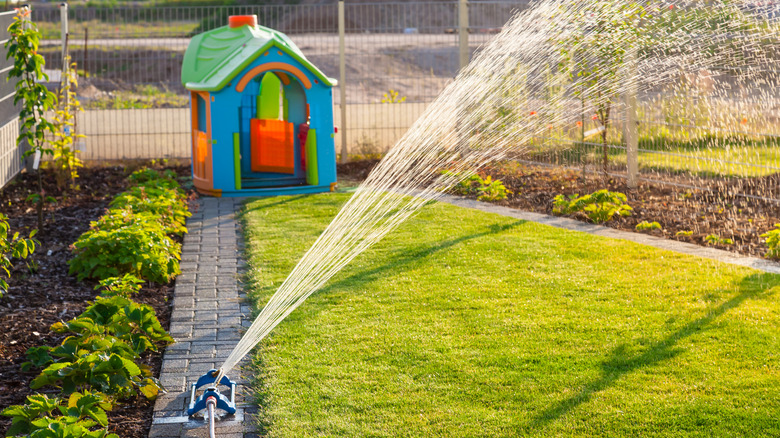The Unexpected Fire Risk In Your Garden And What To Do About It
With rising temperatures, many regions around the world are experiencing longer dry spells, posing unforeseen dangers to homeowners. This increased heat brings significant challenges for gardens and yards, causing soil dehydration and stress on plants. Droughts become more common, impacting water availability for irrigation, while higher temperatures also create a more favorable environment for pests and diseases, leading to greater plant damage. As a result, gardeners must adapt by employing water-efficient practices and implementing climate-appropriate landscaping techniques.
With that in mind, homeowners should be aware of another potential danger that may be lurking in their yard. With rising temperatures, mulch can become highly flammable. While it is a commonly-used landscaping material that increases the aesthetic appeal and functionality of yards and gardens, mulch also can become a fire hazard under extreme heat and arid conditions. Homeowners and gardeners alike should be aware of these hazards and take preventative measures in order to avoid setting fire to their property and home.
Signs your mulch be at risk
While mulch may provide many advantages to your yard and garden, under certain conditions it can become a fire hazard. Several factors contribute to this potential danger. Since mulch is typically made of organic materials, such as wood chips, bark, or straw, it is highly combustible as these materials contain flammable compounds like cellulose and lignin. If the mulch is not properly maintained or becomes excessively dry, it can ignite more easily. So if your area is experiencing elongated periods of dry heat, you should consider watering your mulch along with your lawn in the morning or evening to keep it hydrated and reduce the risk of combustion or wildfires.
In addition to adverse heat and humidity conditions, windy weather can fan small flames, spreading the fire more rapidly to more parts of your yard or even your home or neighborhood. Be sure to watch out for upcoming windy weather during long dry spells. Finally, the proximity of mulch to potential ignition sources is critical. Mulch beds located near heat sources such as grills, outdoor fire pits, or even cigarette butts are more susceptible to catching fire. Be sure to keep a watchful eye when these flammable items are in use to avoid sparking a flame.
How to prevent fires in your garden
To prevent mulch from catching fire in your yard, follow preventive measures and be prepared in case a fire does occur. In order to prevent fires, choose mulch made from fire-resistant materials like hardwood chips or rocks, which are less likely to ignite compared to highly flammable materials like straw or pine needles. When laying down mulch, spread it in thin layers no more than two to three inches thick. Regularly water the mulch as moist mulch is less likely to catch fire. Keep mulch beds at a safe distance from buildings and potential ignition sources like grills or fire pits. Lastly, remove dry leaves, twigs, and other flammable debris from the mulch regularly to reduce fuel for potential fires.
Once mulch is applied to your yard, you can also make sure you're prepared for potential fires, especially in dry, wildfire-prone climates. Keep a fire extinguisher nearby and ensure it is regularly inspected. Additionally, have a readily accessible water source nearby to quickly extinguish small fires. In the event the fire is beyond your control, call emergency services immediately to seek professional assistance to avoid the fire from spreading. For extremely arid climates, establish an evacuation plan and ensure everyone knows the escape routes in case of a large-scale fire. Nonetheless, prevention is key, and you can significantly reduce the risk of mulch fires and ensure the safety of your yard and property by following fire safety measures.


